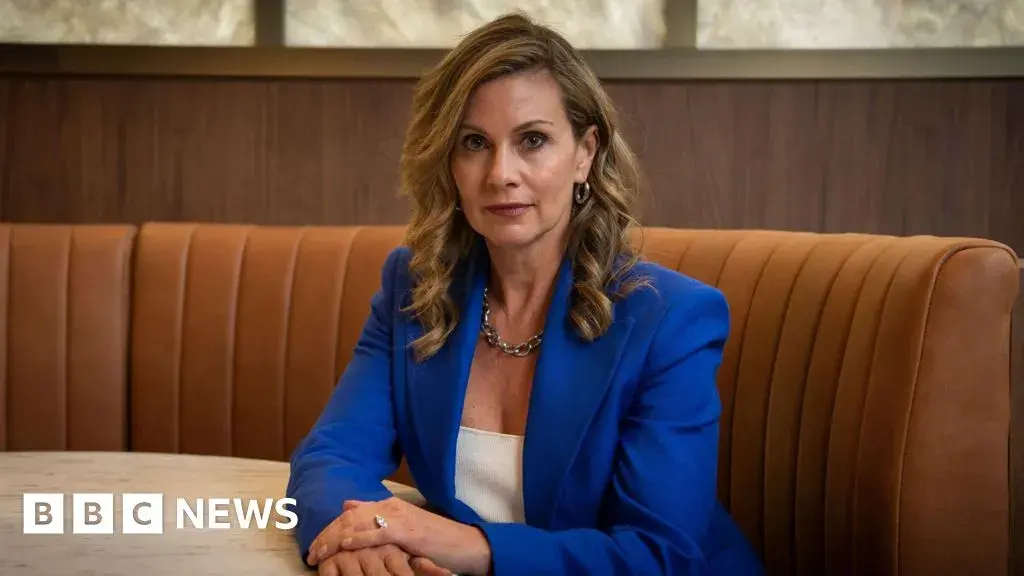Earlier this year, the Australia’s eSafety commissioner took X to court over its refusal to remove videos of a religiously motivated Sydney church stabbing for its global users.
The case was ultimately dropped, but commissioner Julie Inman Grant says she received an “avalanche of online abuse” after Mr Musk called her the “censorship commissar” in a post to his 196 million followers.
[…]
A Columbia University report into technology-facilitated gender-based violence - which used Ms Inman Grant as a case study - found that she had been mentioned in almost 74,000 posts on X ahead of the court proceedings, despite being a relatively unknown figure online beforehand.
According to the analysis, the majority of the messages were either negative, hateful or threatening in some way. Dehumanising slurs and gendered language were also frequently noted, with users calling Ms Inman Grant names such as “left-wing Barbie”, or “captain tampon”.
[…]
Ms Inman Grant said that Mr Musk’s decision to use “disinformation” to suggest that she was “trying to globally censor the internet” had amounted to a “dog whistle from a very powerful tech billionaire who owns his own megaphone”.
She said that the torrent of online vitriol which followed had prompted Australian police to warn her against travelling to the US, and that the names of her children and other family members had been released across the internet.
[…]
The case turned into a test of Australia’s ability to enforce its online rules against social media giants operating in multiple jurisdictions – one which failed after a Federal Court judge found that banning the posts from appearing on X globally would not be “reasonable” as it would likely be “ignored or disparaged by other countries”.
In June, Ms Inman Grant’s office said it would not pursue the case further, and that it would focus on other pending litigation against the platform.
X’s Global Government Affairs team described the outcome as a win for “freedom of speech”.
Elon is a fucking terrorist. Deport his ass back to daddy’s emerald mines.
I’ll give you an upvote just for knowing what type of gem it was. So many South African diamond mine comments smh.
X’s Global Government Affairs team described the outcome as a win for “freedom of speech”.
So I guess every upper level employee at deadbird site is just another Musk asskisser with the same demented view of free speech?
He got rid of everyone else when he took over, he’s still dealing with court cases about how he handled that.
I wonder what the proportion of bots to actual gamergate incel chuds who idolise Musk was.
I’m quite conflicted about this.
I hate musk. Hate twitter. Hate that people were sharing videos of a terrorist attack.
That said, I suspect that this was something of a test case, with the regulator flexing their censorship muscle, and I’m glad it didn’t work out.
It’s also disappointing that her kids were doxxed, I don’t condone that at all… but “just doing my job” is not a reasonable defence when you have a shitty job strategising how to corrode privacy.
The stabbing was literally live streamed and they were trying to block a very graphic footage to be viral on Twitter. I would have blocked the instance if any fediverse instance didn’t remove such a video from their platform.
And that’d be reasonable for you to do. However, having a network choose to remove something, or cut ties with servers in the network that don’t in an attempt to persuade them to remove that thing, isn’t exactly the same as a government ordering a thing be removed. The former doesn’t give much avenue for a malicious actor to suppress something that isn’t in their interest, because they can hardly control the collective actions of users on the network, but the latter does by creating a single point of decision making on the network’s content from the outside. Not that the motivations in wanting that video gone were bad, but there is an element of risk to making it possible for a government entity to remove something from a social network, even if the thing they want gone this time is something that really shouldn’t be there.
deleted by creator
It’s complex and I don’t have the answers. My comment is merely hilighting the conflict between these 2 ideals… governments shouldn’t whether or not specific content is ok, but companies shouldn’t provide content which is clearly unacceptable.
If xitter didn’t provide that content the government wouldn’t have to intervene.
If the government does intervene it reduces the barrier for them to intervene in future.
Governments shouldn’t [?] whether or not specific content is ok
Yes they should.
Idk why do people act as if online content is detached from real life. Governments decide what type of content/things are ok irl all the time, literally laws are deciding what is ok for you to do and show in real life all the time, everywhere, in all aspects of life. Why do you think online content is untouchable?
In most countries going out and showing your penis in public will land you in jail, why is the government deciding this is inappropriate “content” to be in public? It is just an example out of… thousands.
What do you think would happen if you set up a huge screen on a public square irl and started playing real murder videos that happened recently to people from your own country? Do you think people would see your huge screen showing actual muders and not call the cops on you? Do you think this behaviour would not destroy your life, maybe land you in jail or get you a huge fine, get you lawuits from the victims’ families (who were real people on your videos) that you would 100% lose?
If you think governments shouldn’t decide what type of content is ok to be shared publicly on social media, I invite you to download a collection of gore videos and set up a huge screen out on the streets and see how long you manage to be showing this in public before it lands you in trouble.
You wouldn’t do it and I bet you know damn right that you getting in trouble for this is correct. Why is public social media different? Online = ethereal world where rules don’t matter?
Come on dude, online content is not detached from real life.
Remember we are talking about content shared publicly for anyone, even unintentionally, to see. Not private messages and private groups that people join willingly.
Sure mate.
You’re suggesting that showing videos in a town square is the same as posting in Twitter? They’re not the same, obviously.
deleted by creator
One is online.
deleted by creator
I don’t see how this is so difficult. Given the choice between a narcissistic billionaire or an independent, accountable government commission that’s bound by the rule of law, I’ll choose the latter every time.
The hypocrite removes videos and other content at the behest of his other authoritarian buddies. Like in Turkey. If you ask me, safety should’ve just blocked and banned twitter from Australia.
Pretty much. Musk is far from a free speech absolutist as he proclaimed himself to be. I would go further and say he’s substantially worse, unpredictable and inconsistent in free speech matters.
Old Twitter would hardly be a true paragon of free expression, but they were at least relatively transparent. Good luck getting any answers from new Xitter or any consistency.
Conservatives are so reasonable. /s
So what exactly was the point of trying to remove the video in the first place?
Standard procedure to reduce copycat killings and be respectful to the families of the victims killed on stream. Imagine why people in the US might want a hypothetical livestream by the Sandy Hook shooter of them shooting a bunch of kids taken down.
Yeah thanks that makes sense.







